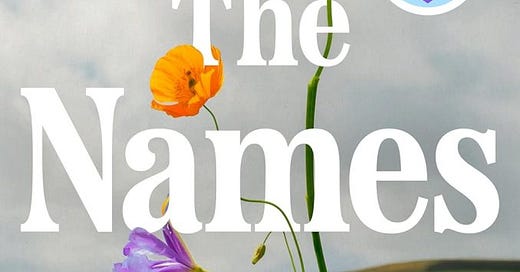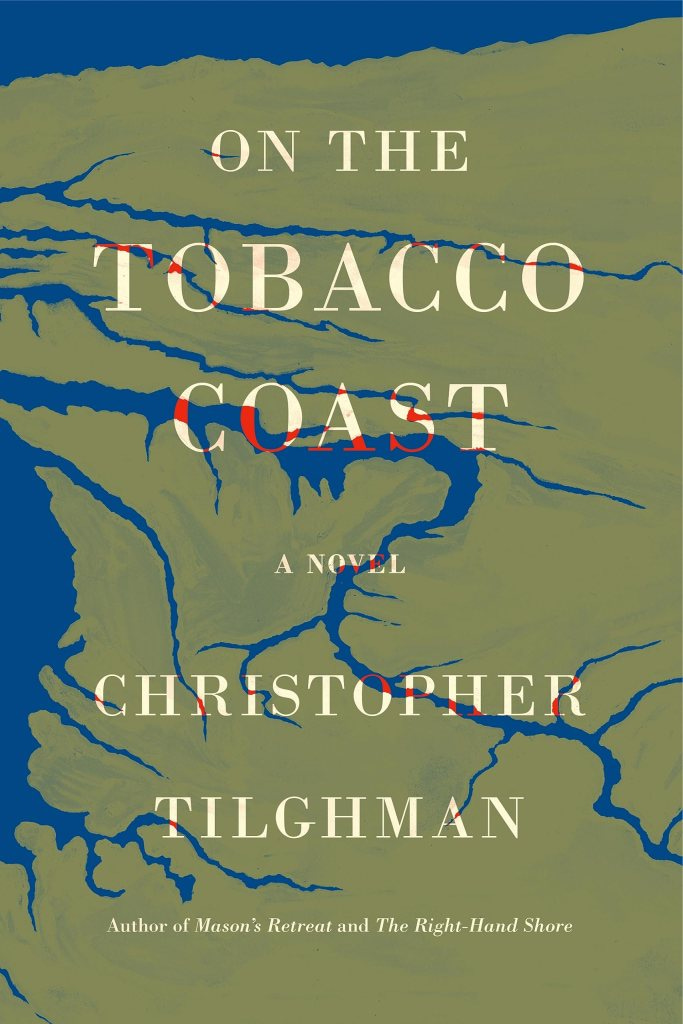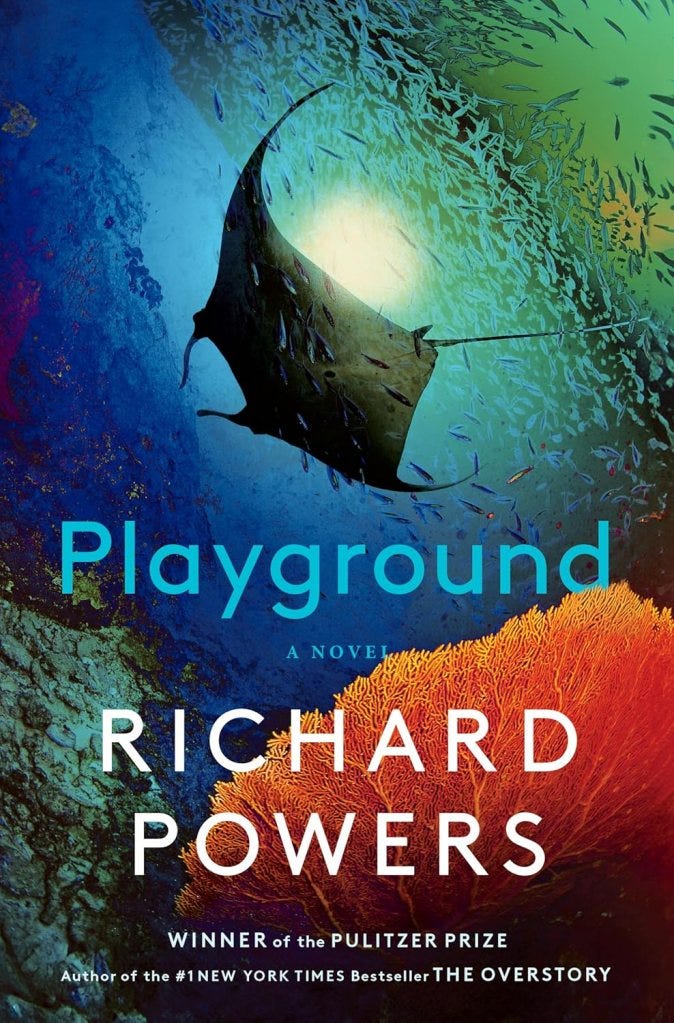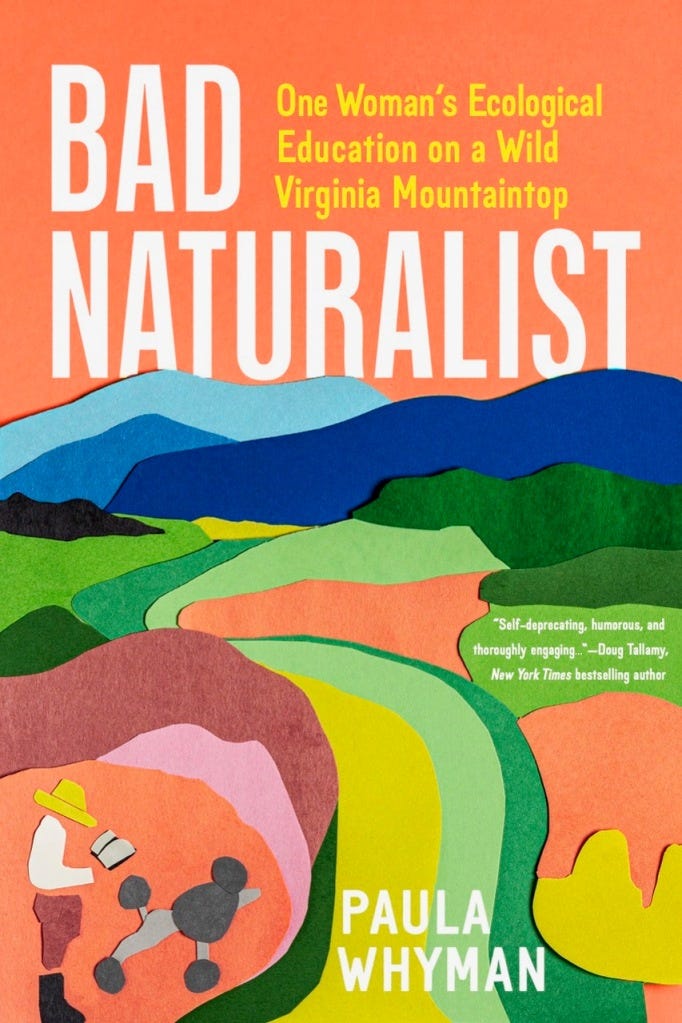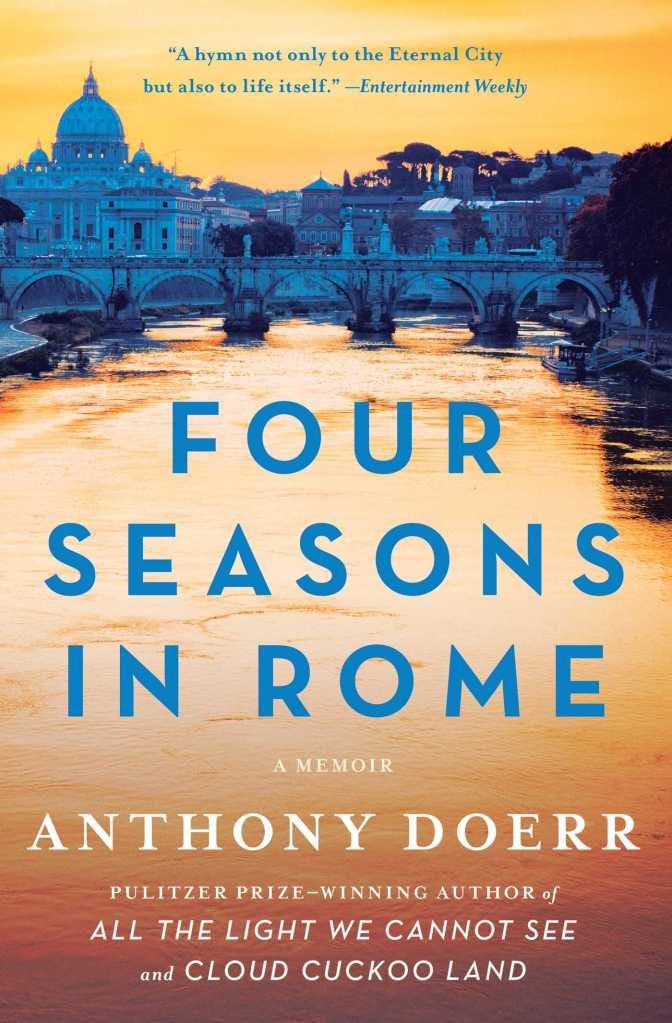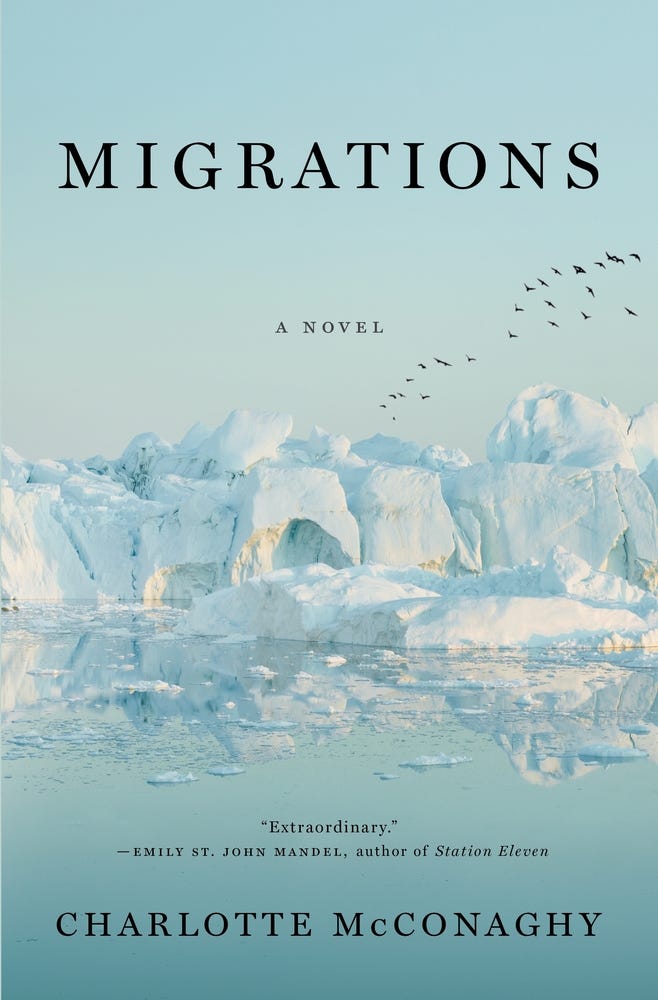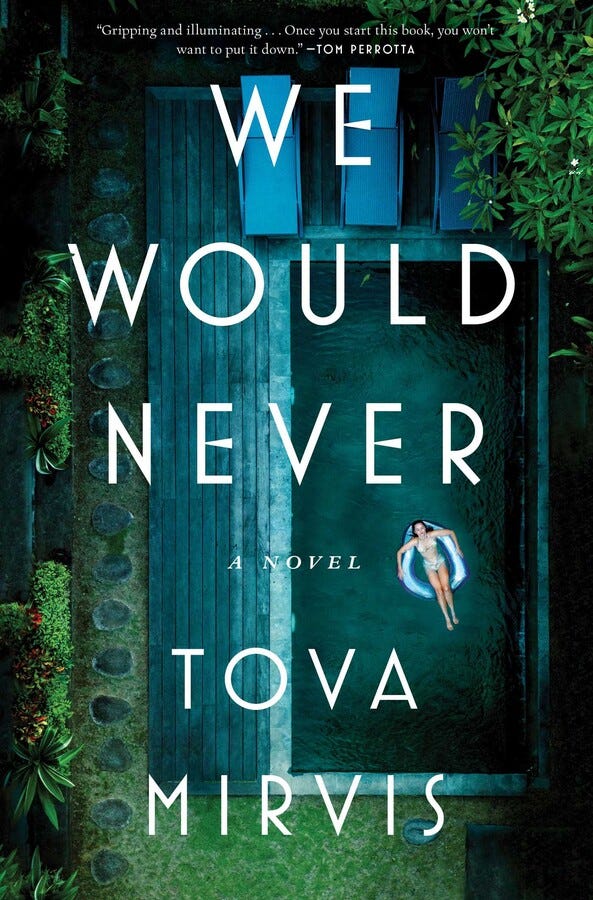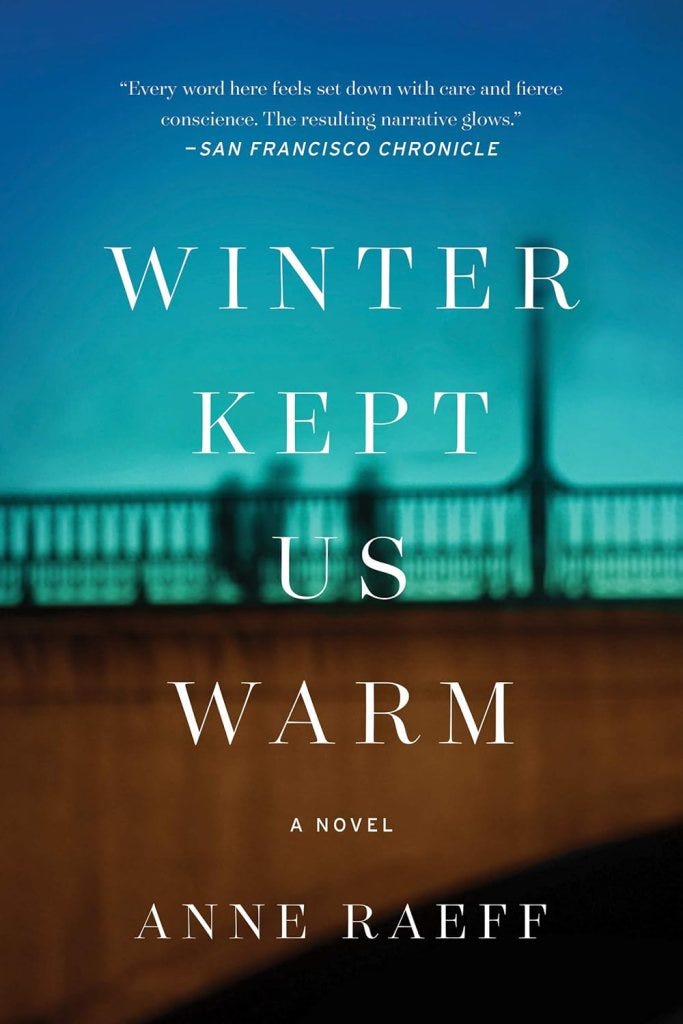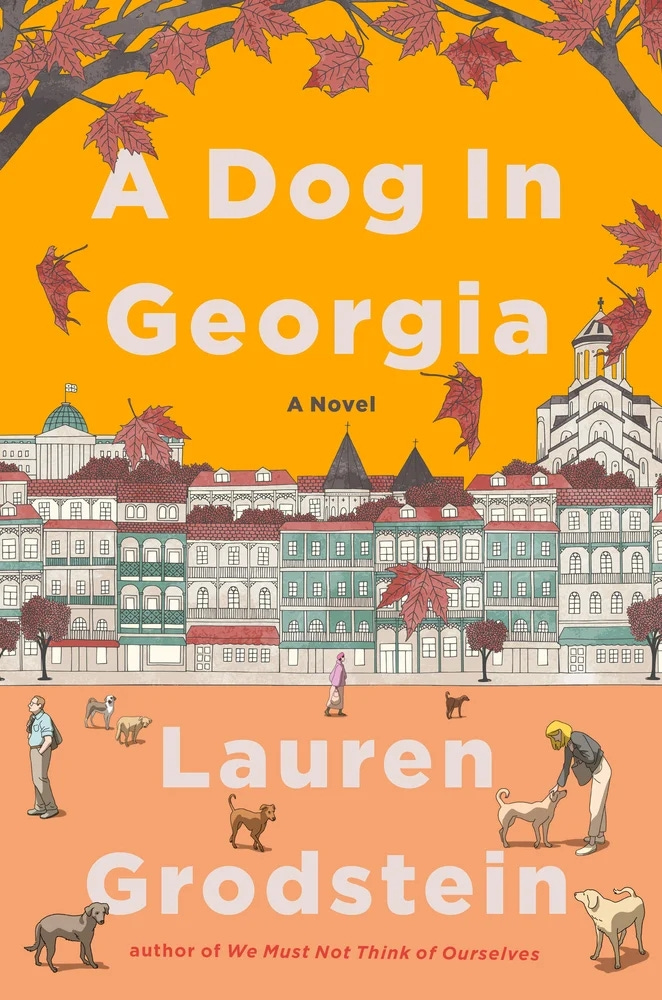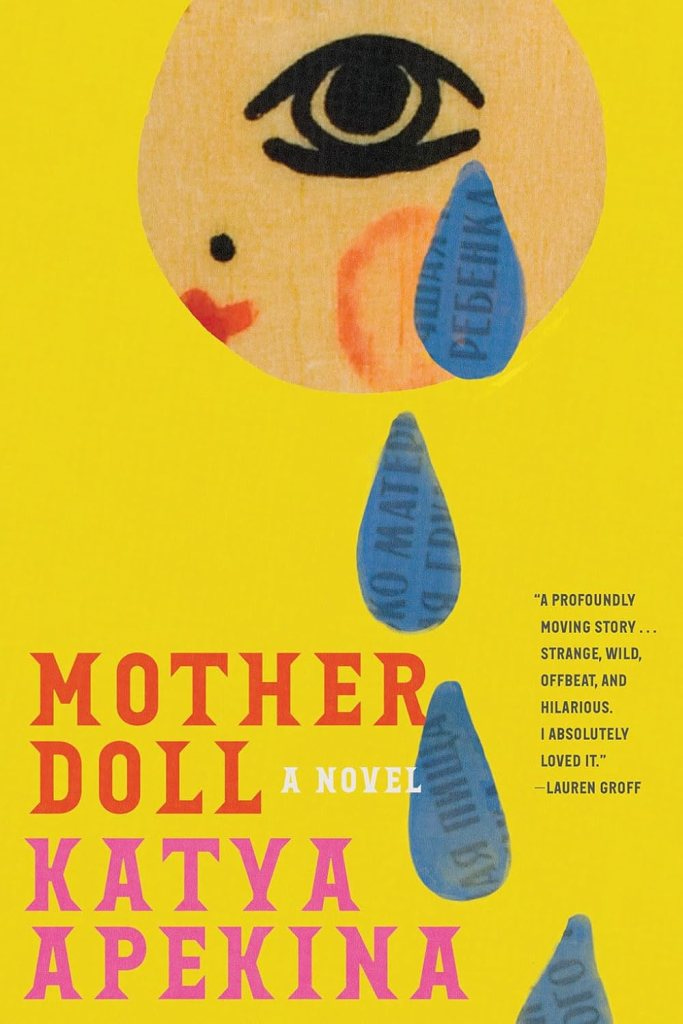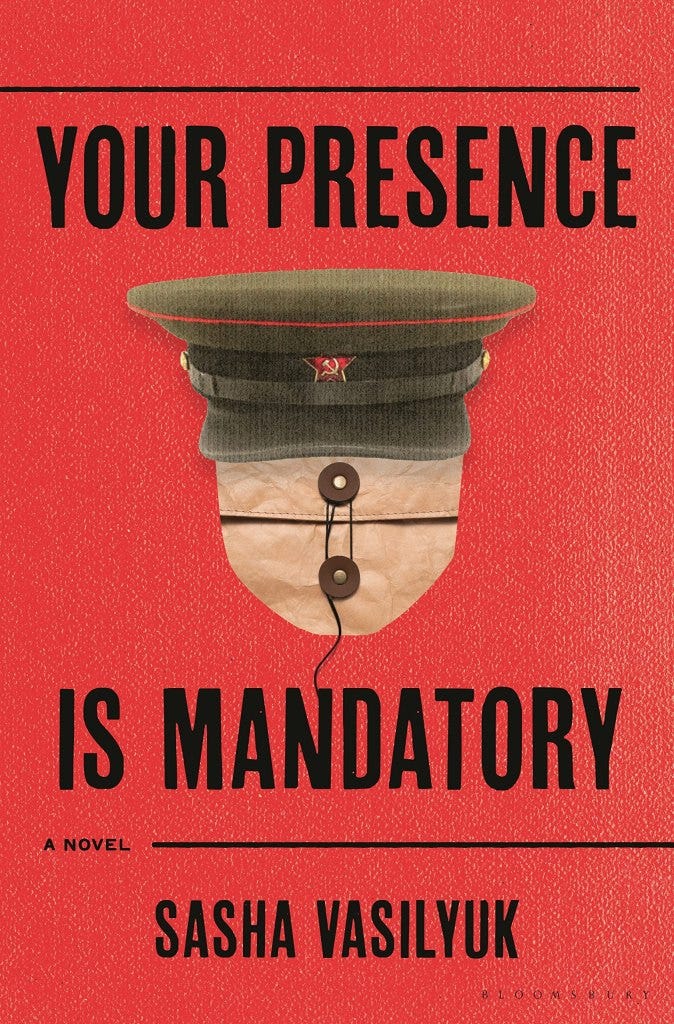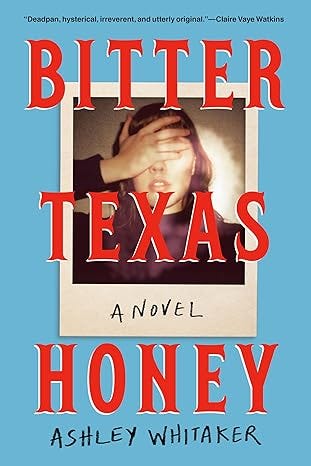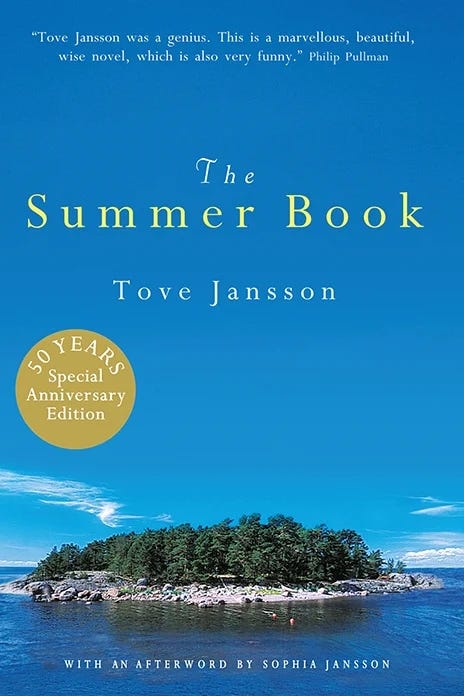Fourteen more authors share their summer reading plans (Pt. 3 of 3)
Over 100 books to consider! May your summer reading provide the escape or information you need to cope with these troubled times.
What I initially thought/hoped would be a single post of maybe 15 authors sharing their summer reading plans turned into three posts with 38 authors participating. It turns out writers like putting together reading lists as much as readers do, and readers enjoy seeing what writers have on their TBR list.
I hope you’ve discovered as many intriguing books as I have and that you’ve added several to your TBR, making it even more ridiculous than it was a week ago. I probably add five books for every one I finish reading. I’m afraid to count how many books are on my list. So many books, so little time.
May your summer reading provide the escape or information you need to cope with what seems like the most chaotic sociopolitical situation in decades, or possibly ever.
Virginia Pye (author of the forthcoming Marriage and Other Monuments, as well as The Literary Undoing of Victoria Swann, Shelf Life of Happiness: Stories, Dreams of the Red Phoenix, and River of Dust)
Lately I’ve been reading fiction like a fiend. You could call it escapism, but I think reading is one of the most efficient ways I know to remember our shared humanity in difficult times. Plus, I’ve enjoyed some amazing novels—inspiring, transporting, cleverly written—several by women authors who’ve responded here, including Mary Morris and Susan Choi, both of whose latest books I highly recommend. With no end to the craziness all around us, I look forward to reading much more this summer, including the following books.
Are You Happy? by Lori Ostlund: After hearing Lori on her book tour, I dove into this short story collection and admired how she effortlessly she shifted expectations in the very first one. I thought it was about one thing, then it turned out to be about something else. If this first story is any indication, the collection is full of surprises.
On the Tobacco Coast is the final novel in Christopher Tilghman’s quartet about many generations of a family who first came to the Eastern Shore of Maryland in the 1600s. I’ve loved the three previous novels, which weave an extraordinary tapestry of this extended family through the centuries. Some of the characters have really stayed with me, including a Black woman, Beal Terrell, who has to be one of the most intricately drawn young women I’ve ever read. I’m sure the final book in this family saga will blow me away again.
The Impossible Thing by Belina Bauer: I’m not a crime reader and usually shy away from thrillers, but a friend gave me this book as a belated birthday gift, and I can’t wait to dive in. Written by a multi-award-winning crime novelist who’s also been up for the Booker Prize, it sounds like a guarantee for a well-written page turner.
Mercy by Joan Silber: If it’s anything like her other novels and stories, Mercy will capture my imagination and heart. It’s set in the East Village in the 1970s and tells what sounds like a dramatic tale. I admire the simple clarity of Joan’s sentences and how she masterfully weaves a story.
The Very Heart of It: New York Diaries, 1983-1994 by Thomas Mallon: I attended Mallon’s book event here in Cambridge last night and came home with his 500-plus-page book. If you happened to read a recently published excerpt in The New Yorker, you’ll understand why I attended the event and was happy to hand over $40 for the book. I cried when I read the excerpts. The writing is gorgeous—witty and poignant and so very human as he speaks with great immediacy about being a gay man in New York at a time when a mysterious illness was taking his friends. So touching and relevant for today, as his entries lay out what happens when a society turns its back on a group and how people can rally and rise up.
Stephanie Gangi (author of Carry the Dog and The Next)
I looked back and was glad to see I did in fact read all of my hopeful picks from last summer, but did not finish my third novel! Aargh! This summer, as last, I’ll be doing more editorial work with dedicated writers on their own books-in-progress. I have a couple on deck that make me forget I’m working, so captivated am I by great storytelling.
Reading-for-escape has taken on increased importance in the last couple of years as I try hard to limit my social media and news consumption. I’ve just started Liz Moore’s The God of the Woods, and look forward nightly to 10 pm, when I leave the phone in another room, and open a real book.
Here’s a short list of what’s next:
Playground by Richard Powers: He’s a favorite of mine, but this eco-novel looks intimidating so I might hold off until September!
Isola by Allegra Goodman: I love some good historical fiction and this one’s based on a true story (although how true, given it happened in 1542?). I’ve not read Goodman yet, so I’m ready for this.
The Hole by Hye-Young Pyun, a creepy-sounding Korean psychological thriller
Heart Lamp by Banu Mushtaq and Deepa Bhasthi: The first short story collection to win the Booker (whose short list and winners are my perennial trusted go-to TBRs)
Anything by Swedish author Frederik Backman; I’ve never read him but so many of my editorial clients love his work and want to emulate it! Also, there’s a wry, funny YouTube video of his that caught my attention. I’d love to hear that voice on the page.
Bonus recommendations:
I’ve read (and listened to) so many great books this past year. Here are my top four:
I Regret Almost Everything by Keith McNally, the great restaurateur’s unvarnished look at himself and his empire. The title alone sold me!
Raising Hare, a gentle, loving nature memoir by Chloe Dalton which helped restore my spirit as I navigate our harsh contemporary trajectory.
North Woods by Daniel Mason, a brilliant, totally absorbing novel of one New England homestead and its inhabitants across centuries.
Orbital by Samantha Harvey, a short, beautiful novel about six astronauts, circling and considering our troubled and magnificent planet.
Karen Bender (author of The Words of Dr. L and Other Stories, The New Order, Refund)
Reading is always calming and helpful to the brain, but it feels especially useful right now, with all of the madness in the world. I have several books I’m kind of juggling; these are some I’m currently reading or recently finished or are on my list to read.
Bad Naturalist by Paula Whyman: This is a fascinating and engaging memoir by Whyman about the ways she tried to turn a section of a Virginia mountain back into a native meadow. It’s about obsession and ecological history and the challenges of invasive species and the profound challenges of a natural landscape. Paula is incredibly detailed and good at explaining; I am learning a lot.
Submersed: Wonder Obsession and Murder in the World of DIY Amateur Submarines by Matthew Gavin Frank: An excerpt from this nonfiction examination of the world of dio-it-yourself submarines was published in Harper’s, and the writing is fantastic–Gavin Frank writes about the obsession of men who make their own submarines with precision and humor and beauty.
The Lost Songs of Nina Simone by Shonda Buchanan: This is a beautiful and inventive look at Nina Simone’s life told through poetry; Buchanan explores Simone’s life as an artist, lover, mother and more, and creates a moving and vivid biography of this legend through poetry.
Show and Tell by Curtis Sittenfeld: I recently finished this collection, and loved the way Sittenfeld explores women, mostly middle-aged, get into a variety of complex situations in which they try to do the right thing and often fail; her stories show how the past and present intersect beautifully, and this has one of my favorite stories, “Show and Tell,” about the harrowing process of financial aid at the Iowa Writers’ Workshop.
Are You Happy? by Lori Ostlund: I saw Lori Ostlund in conversation with Matthew Lansburgh recently and just started and already love the masterful way Ostlund is exploring issues of class, LGBTQ identity, family, marriage, friendship, how these characters exist through time. The feeling just rises up off these stories, in a way that is rare and so compelling. Read it!
American Mythology by Giano Cromley: I can’t wait to read Bookends graduate Giano Cromley’s eco-thriller”American Mythology,” about longtime male friendship, Bigfoot, and the stark, beautiful landscape of Montana. I know that this novel, which I saw in early draft, will be the kind of escape we all need right now.
Woman of Interest by Tracy O’Neill: I love Tracy O’Neill’s singular, funny, sharp, probing, voice, and I am excited to read this memoir which came out in 2024 and got lots of acclaim. It’s a genre-bending memoir/detective story about the narrator, a Korean-born adoptee. raised in New England, and her sudden obsession with finding her birth mother. O’Neill’s voice is not to be missed.
The Language of Remembering by Patrick Holloway: Patrick is an Irish writer who has won numerous awards for his fiction–and bursts onto the scene this year with this gorgeous, moving novel about a son returning home to Ireland with his young family to help care for his mother with Alzheimer’s. Beautiful characterization, stunning writing.
Joanna Rakoff (author of My Salinger Year and A Fortunate Age)
I’ll be spending part of this summer in Rome and Florence, so I’m reading books set in these cities. For me, this dramatically alters my experience of any city, whether it be Tampa or Adelaide, or any place in between. In this case, it also allows me to revisit some of my favorite novels and writers (Wharton, Bowen, Forster) and gives me an opportunity to read one of my son’s favorite books (SPQR) and to finally delve into two writers who’ve long intrigued me (Ginzburg and Morante). Here’s my list (and I’m open to suggestions)!
A Room with a View, E.M. Forster
Portrait of a Lady, Henry James
Roman Fever and Other Stories, Edith Wharton
SPQR: A History of Ancient Rome, Mary Beard
Four Seasons in Rome, Anthony Doerr
A Time in Rome, Elizabeth Bowen
History, Elsa Morante
The City and the House, Natalia Ginzburg
Elizabeth Rosner (author of Third Ear: Reflections on the Art and Science of Listening, Survivor Café: The Legacy of Trauma and the Labyrinth of Memory, the novel Electric City, and more)
Migrations by Charlotte McConaghy: Not sure how I missed this from 2020, but the story captures my deep attention to the natural world. It’s disturbing and yet hopeful — both a warning and an offering of possibility.
The Bear by Andrew Krivak: Another novel that I missed from 2020, and in some ways the inverse of Migrations. Both of these novels are somewhat dystopian, yet The Bear is less naturalistic and almost allegorical. I’m captivated by the premise as well as the writing, which is spare and elegant.
Dream Count by Chimamanda Ngozi Adichie: I was smitten with Americanah, and this novel grabbed me from its opening lines. Densely populated with characters, yet mesmerizing in its complicated focus.
The Transit of Venus by Shirley Hazzard: I read this many years ago, and I want to read it again. A classic.
In the Time of the Butterflies by Julia Alvarez: In addition to admiring the craft of this writer, I’m motivated by interest in its subject matter, because I want to learn more about this particular history and how it can be handled in fiction.
A Sport and a Pastime by James Salter: I remember being utterly knocked out by this novel when I read it back in graduate school. I want to study his craft more deeply this time.
Is a River Alive? by Robert Macfarlane: The only book of nonfiction on this list (for now!). But I’m curious to see if this incredibly popular book will work its magic on me.
You can buy these and many other books I’ve featured at my Bookshop.org store. Purchases help fund this newsletter. https://bookshop.org/shop/openbook
Randy Susan Meyers (author of The Many Mothers of Ivy Puddingstone, The Widow of Wall Street, Accidents of Marriage, and The Fashion Orphans with M. J. Rose)
I will be in the middle of at least three books every day this summer: one on audio (currently re-listening to Yellowface by R. F. Kuang), a physical book (currently, for research), Blinded by the Right: The Conscience of an Ex-Conservative by David Brock, and …
We Would Never by Tova Mirvis: Why? Because this is the book I am summer-reading right now, the one I had to force myself to put down to write this list, the one that might stand between making dinner or not. You know that feeling when you don’t want to finish, and you can’t wait to finish? Yes, this one: the story of who killed the husband. And the crazy time of divorce.
Black AF History: The Un-Whitewashed Story of America by Michael Harriot: Why? I watch TikTok every night to ensure I brush my teeth for three minutes and complete the ten-step routine I require at this age. Two nights ago, a compelling woman explained why I should read this book. She convinced me that a) for research for my WIP and b) the page-turning brilliance would change my take on the world.
Not My Type: One Woman vs. a President by E. Jean Carroll: Why? Because Ron Charles promised it’s “captivating,” because I admire the hell out of this woman, because I love her voice on Substack, and because I want her book to soar (thus, I bought it!).
Found in Transition: A Mother’s Evolution During Her Child’s Gender Change by Paria Hassouri: Why? Because I just read (and endorsed) her soon-to-be-released novel (Harvesting Rosewater) and adored every page, which led me to this memoir, which, from an initial perusal, will allow me another journey, hearing her astonishingly honest, caring, and loving voice on a topic that is criminally misunderstood in our current political climate.
Culpability by Bruce Holsinger: Why? Because I recently read his novel The Displacements, I couldn’t put it down for a second, and I need another stapled-to-the-couch book featuring moral dilemmas and accidents that change lives.
Amanda Churchill (author of The Turtle House)
Summer reading is my favorite. It totally takes me back to reading a million books so I could get a Pizza Hut Personal Pan Pizza!
I am catching up on all the books my book club friends have been raving about. These three are at the top of the list: Margo’s Got Money Problems by Rufi Thorpe, The Names by Florence Knapp and The Husbands by Holly Gramazio. These are my vacay reads and I can’t wait!
I’ve also been devouring non-fiction, and the two that I’ve loved and finished in the last week or so are We Will Be Jaguars by Nemonte Nenquimo (amazing… then I had to do a deep dive into Ecuador on Google maps!) and Everything is Tuberculosis by John Green (just WOW… I feel so much better informed about the world after reading this one).
The Small and the Mighty by Sharon McMahon is another non-fiction and one that I sat in my car in the driveway listening to, even though I had some ice cream in the back. Sharon reads it and it’s such a great listen! Bonus, my kids enjoyed hearing about these “unsung Americans” and it really brought to life some of the history that they had learned in school this year. It also brought up some interesting conversation starters, which is great when you’re living with tweens and teens like I am!
A book that I’ve read and you will be able to read soon as well is Narrow the Road by James Wade. It comes out in October and it is such a gorgeous, lyrical novel about betrayal and friendship. Total must-read!
This last week, my dear friend Grace sent me the latest book from Katie Kitamura, Audition, and I can’t wait to read it! But I always need some time to soak into Kitamura’s work, so that’s a novel for later in the summer.
Finally, here are my holds at the library and I’m the 4th in line for all three. Argh. Custodians of Wonder by Eliot Stein is “a vivid look at 10 astonishing people who are maintaining some of the world’s oldest and rarest cultural traditions.” This sounds fabulous and since it’s an audiobook, I think it might be a good one to listen to with the kids in the car like The Small and The Mighty. Next is We Do Not Part by Han Kang–can’t miss a Nobel Prize winner! Finally, I love Ocean Vuong’s voice and On Earth We’re Briefly Gorgeous is a favorite, so I simply can’t wait to read The Emperor of Gladness.
Roxana Robinson (author of Leaving, Dawson’s Fall, Sparta, and Georgia O’Keeffe: A Life)
The Mobius Book by Catherine Lacey. This was highly recommended by someone whose taste I admire. It’s experimental in form, and the book can be turned upside down and read forward or backward, but what I look forward to finding is a new way to excavate the life of the emotions, which this is said to perform. The narrator has gone through heartbreak, and this is what she says about it.
Mrs. Dalloway by Virginia Woolf, Annotated by Merve Emre. I have always loved this book second to her masterpiece, To the Lighthouse. I am curious about the fact that it may have become more famous than her masterpiece – maybe because of the very beautiful and fascinating riff on it that Michael Cunningham performed in his masterful, The Hours. What will I think of it the book time, and what will Merve Emre say about it? I admire Emre enormously, and look forward to an immersive journey through Woolf’s beautiful, mysterious, poetic text, accompanied by Emre’s deep and thoughtful scholarship.
Is a River Alive? by Robert MacFarlane. I have read all the nature books by this poet/philosopher/naturalist, whose last one, Underland, won the Booker Prize. He is a beautiful and thoughtful writer, an extraordinary observer, and a profound admirer of the natural world. I love reading his descriptions of his forays into strange and often frightening places: his insights are profound and his sentences beautiful.
The Place of Tides by James Rebanks. By the author of the marvelous A Shepherd’s Story, a sheepherder in Yorkshire. I loved Rebanks’ tale of sheepherding, its history and its people, and his own story, from the Dales to Oxford University, then back to the Dales. This book is about a time he spent with a Scandinavian woman who made nests for a particular wild and haunting bird, the eider, in the far reaches of the Norwegian coast.
Loved and Missed by Susie Boyt. I have already read this, but want to give it a shout-out. This is a brilliant novel, quick, glancing and heartrending, about a woman whose daughter is a drug addict. Set in London, it charts a path of family love and pain that is beautiful and wrenching.
Piranesi by Susanna Clarke. This was recommended to me by a very booky friend whom I like very much and whose mind I admire, but whose taste I don’t always agree with — she loved All Fours — but says she wants to talk about it when I am finished, and why would I not want to have a conversation about books with a smart, curious, interesting very good friend?
I’ll Be Right Here by Amy Bloom. Amy’s writing is always elegant and intelligent, and I’m looking forward to reading this international, multi-generational saga, which starts in Paris in the 1930s, among immigrants from Algeria.
When All the Men Wore Hats by Susan Cheever. This comes out in the fall and I can’t wait to read it. Here Susan has written a critical and personal work about her father’s stories, and it sounds like a fascinating dive into Cheever’s work. Susan provides scholarly context, family history, and her own insights. John Cheever was one of the great short story writers, and his body of work is foundational to American short fiction as we know it. I’m eager to see this new work, and to reconsider those beautiful stories.
Crossing by Glyn Vincent. This is also non-fiction, a memoir by an excellent journalist/art historian. I know something about his family history, and I’m looking forward to learning more, and also about his trip across the ocean, through storms both marine and interpersonal, though the marine kind I find terrifying. (I would never sail across the ocean in a small boat, I am much too craven, so I admire those who have done so.)
Rachel Hall (author of Heirlooms: Stories)
Snow Road Station by Elizabeth Hay: I’m excited to dig into this novel by a Canadian writer I love for her insights about human nature and female friendship in particular. Snow Road Station follows an actress in her 60s as she considers the last act of her life. I loved her collection Small Change and her novel A Student of the Weather. Why isn’t she better known in the U.S.?
The Grand Scheme of Things by Sarah Cedeno: This is a debut collection by a local writer (and friend) who I’ll be hosting in the fall at the reading series I curate at a local bookstore. I love a linked collection and this one sounds like a kind of updated Winesburg, Ohio, though set in Western NY. Short story master Robin Black says this about The Grand Scheme of Things: “I read the collection ever more grateful for a true storyteller’s insight, generosity, and companionship along this journey of ours.”
Winter Kept Us Warm by Anne Raeff: All year, I order books that I don’t have time to read because I’m busy teaching (and grading and some more). I’m so glad I have this novel to sink into now, as it’s entirely my cup of tea! Rich characterization, three continents, the lasting effects of war, and long friendships—what more could you ask for?
The Words of Dr L. and Other Stories by Karen Bender: I very much admire Karen Bender’s collection The New Order and expect to be wowed by these stories too. I’m curious to see how she explores the contemporary American family with a speculative lens. Love me some “domestic fabulism”!
Melting Point by Rachel Cockerell: I’m really interested in this look at the early Zionist movement which uses only primary sources (letters, diaries, newspaper articles.) Unlike traditional history texts, there is no filler or contextualizing by the author. The book is said to read like a novel. I’m also curious to learn more about the Galveston Plan, an attempt to dilute the influx of Jewish immigrants in NYC.
Kelly McMasters (author of The Leaving Season: A Memoir in Essays, co-editor of Wanting: Women Writing About Desire)
Full disclosure: I am not a beach-read kind of gal. I prefer my fiction and nonfiction to have bite and be brainy, even in the heat. I’m spanning early summer to fall with this list because I read so little during the semester and I try to fit it all in over the summer (thank goodness for galleys!). I am so excited looking at this reading list. So. Many. Smart. Women!
My first read this summer was Spitfires: The American Women Who Flew in the Face of Danger During World War II (May) by Becky Aikman. I interviewed Aikman about the book for Newsday and got to speak with her about these incredible female pilots who have been forgotten from history. Much of her story was meticulously drawn from never-before-seen diaries that describe the freedoms the skies gave these women—political, sexual, emotional, and physical. A wild and compelling ride.
I am a third of the way through Dry Season: A Memoir of Pleasure in a Year Without Sex by Melissa Febos and am hooked on the expansive way she considers celibacy, desire, and ambition. Fans of Abandon Me, Girlhood, and Body Work will not be disappointed by this exploration of the singular self within the context of celebrated celibate female heroes who came before us.
I pre-ordered A Dog in Georgia: A Novel by Lauren Grodstein (August) immediately and can’t wait for it to arrive. Author of the stunning We Must Not Think of Ourselves, Grodstein takes us this time to Georgia (the country), searching for a lost dog and her former self in the streets of Tbilisi. A food story, a coming-of-middle-age story, and a reinvention of self story, wrapped up in Grodstein’s trademark gorgeous prose.
I’m so excited to dig into Intemperance: A Novel by Sonora Jha. I just got the galley and technically this is publishing in the fall, but I have to include it here. Jha, author of How to Raise a Feminist Son and The Laughter, is one of my favorite writers and I can’t wait to read this inventive fable about a middle-aged woman, divorced three times, who organizes a competition for her hand in marriage. Tart and funny, brilliant and ballsy.
And finally, Trying by Chloe Caldwell. Written in a similar style as her cult classic (and a personal fave) Women, Trying is a diaristic account of just that: trying. Trying to conceive a child, trying to stay married, trying to write, trying to find her way back to pleasure and self. As I’m thinking about this book along with the others on my list, I’m realizing a very clear trend for my summer reading: moving away from youth, reawakened desire and destiny, a search for personhood and possibility. Viva la hot-middle-aged-girl summer!
Shelly Sanders (author of The Night Sparrow—out July 1—and Daughters of the Occupation)
Mother Doll by Katya Apekina: As soon as I read that Mother Doll explores the trauma between generations of Russian women, I was hooked. This is a subject that resonates deeply with me, as a descendant of Russian-Jewish women. I also love the title’s metaphor of the Matryoshka dolls, one inside the other, like souls interconnected through generations.
Life and Art: Essays by Richard Russo: I learned about this collection on “The Book Case” podcast and was intrigued by Russo’s openness about how these essays came to be, and how he’s discovered himself through writing. I’m a huge fan of his novels and look forward to digging into these essays.
The Enchanted Wanderer by Nikolai Leskov: Russian short stories are amongst my favorite reads, so I was surprised to discover a writer I’d never heard of in a bookstore recently. On the book’s inside flap, I saw that Chekhov admired Leskov’s writing; since I’ve read and loved everything Chekhov has written, I’m eager to see his influence on Leskov’s work.
The Red House by Mary Morris: With the protagonist’s search for her mother, threaded with an Italian setting, and (for me) an unfamiliar Jewish historical narrative, this novel appealed right away. I’m ashamed to say I haven’t read any of Morris’ novels. I suspect The Red House will be the start of my reading journey.
Ana Turns by Lisa Gornick: I listen to writing podcasts almost daily, to improve my craft and to discover new authors and books. On a “Writers on Writing” podcast, recorded in 2023, I listened to Lisa Gornick discuss Ana Turns, which delves into a woman’s world on the cusp of turning 60. I wondered how I’d missed this novel! I’m fascinated by Gornick’s background as a clinical psychologist, which, I would think, adds authenticity and texture to her characters and their interiority. Finding Gornick is a reminder to include older books in my search for new reads.
Memorial Days: A Memoir by Geraldine Brooks: Three years after her husband’s unexpected passing, Brooks has written about how she’s come to terms with her grief. Again, I listened to an interview with Brooks on “The Book Case” podcast and was struck by her decision to stow her grief away in the months after his death and then retreat to a secluded island, where she confronted her emotions and wrote this memoir. This is a dubious “summer read,” with its subject, but I tend to read and write dark books.
Zeeva Bukai (author of The Anatomy of Exile)
Are You Happy? by Lori Ostlund: I belong to a book club that reads only short story collections. This one is at the top of our summer reading list. I am in awe of Ostlund’s ability to render in just a few sentences a world that shimmers with emotion.
Your Presence is Mandatory by Sasha Vasilyuk: I cannot wait to read this debut novel based on real events about a Ukrainian World War II veteran whose secret could land him in a gulag. I’m especially interested in seeing how Vasilyuk navigates this totalitarian world of secrets, lies, and betrayal and what effect they have on this man’s family.
The Narrow Road to the Deep North by Richard Flanagan: There’s a new series on Amazon by the same name and watching this wrenching and exquisite story about an Australian doctor in a World War II Japanese POW camp on the Burma Death Railway, I knew that it had to be a novel and I knew that I had to read it. Turns out it won the 2014 Man Booker Prize.
Mrs. Lilienblum’s Cloud Factory by Iddo Gefen: Gefen’s debut novel is about a family living in the Negev Desert in Israel. They create a startup based on their mother’s wacky invention — a machine that turns desert sand into clouds. The book explores technology, Israeli startups, and family dynamics. Given the frightening situation in Israel and the Middle East right now, the absurdist and comedic elements in this novel are particularly appealing.
Improvement by Joan Silber: I’m late to the party on this one. But I love everything Silber has written. I’m looking forward to what I know will be gorgeous writing and thoughtful storytelling.
The Snarling Girl and Other Essays by Elisa Albert: This one has been in my queue since last fall. I’m excited to finally get a chance to read what I know will be a smart, insightful, witty, and ferocious collection of essays.
The Third Temple by Yishai Sarid, translated by Yardenne Greenspan: I’ve read everything Yishai Sarid has published in English, The Memory Monster and Victorious (thank you, Yardenne Greenspan for the exquisite translations). Both were searing and brilliant, and I’m sure this one will be too. The story takes place in a near-future Jerusalem where religious extremism rules. A cautionary and yet vital tale.
Fervor by Toby Lloyd: This sounds like a fascinating read, about a thirteen-year-old girl whose behavior changes after the death of her grandfather, a Holocaust survivor. Her mother believes the reason for her daughter’s transformation is a deep dive into Kabbalah. Her brother believes the answer is simpler — family dysfunction.
The Jerusalem Bible: This is my second summer at Rosmarin’s Bungalow Colony, a throwback to the Borscht Belt Bungalow Colonies of the 50’s and 60’s. Think “A Walk on the Moon,” but unfortunately without the blouse man. Saturday mornings we hold a Bible study group. This summer we’re reading a few of the prophets, starting with Jonah. So far, we’ve looked at Jonah-adjacent works like Pinocchio and “The Rime of the Ancient Mariner.”
Ramona Reeves (author of It Falls Gently All Around and Other Stories)
I’m especially looking forward to these reads (in no particular order):
Who I Thought You Were by Michaela Spampinato (The Permanent Press): I first encountered Spampinato’s writing during my MFA program at New Mexico State University, where we were both fiction students. She had a knack for details and tone that always rendered her narratives memorable. I’m certain that aspect of her writing hasn’t changed, and for that reason, I’m excited to read her debut novel, a literary thriller, this summer.
Bitter Texas Honey by Ashley Whitaker (Dutton): The title of Whitaker’s debut novel grabbed my attention because I live in Texas, but it’s not only the title that called to me. The description of this debut novel weaves many elements I love seeing in fiction: family drama, humor, religious fervor, and a character with a past to overcome (in this case, a struggling novelist).
James by Percival Everett (Knopf Doubleday): Like many writers, I read Huckleberry Finn as a kid and then again as an adult. The novel had its point, I was told, but it never felt “complete” to me, thus why James is on my list this summer. I expect this is one novel I will be reading more than once and perhaps studying for years to come.
Are You Happy? by Lori Ostlund (Astra House): I previously encountered Ostlund’s wonderful work in literary journals. Her style and careful attention to craft and language hooked me. The world stage has me grappling with happiness and what it means to be happy. Whether her fiction answers that question or not, I’m happy Ostlund’s collection is on my list.
Big Chief by Jon Hickey (Simon & Schuster): This debut novel is touted as a tale of power and corruption set within a tribal casino. The stakes and political intrigue seem high, and I’m always interested in how other writers develop and unravel complex plots and characters. Plus, the book is described as There, There by Tommy Orange meets the The Night Watchman by the inimitable Louise Erdrich, two writers whose work I adore.
The Imagined Life by Andrew Porter (Knopf): I was introduced to Porter’s work through The Disappeared, a tonally exquisite collection of stories set in Austin and San Antonio. I also heard him discuss The Imagined Life at a reading and became enthralled by the novel’s father-son relationship. Maybe that’s because my own father left his family, but whatever the reason, I’m looking forward to the California clan I will encounter in Porter’s latest book.
Hannah Dela Cruz Abrams (author of the novella The Man Who Danced with Dolls and the memoir The Following Sea)
The Summer Book by Tove Jansson: Caleb Dean sent me this one because I had somehow never read it. The lyricism and restraint—oof. I’ve been slowing down and turning back the pages. I want to stay on this little island in the Gulf of Finland, gathering salt-washed bones and watching Sophia’s grandmother carve animals from tree branches in the forest. Quietude is so very alive in Jansson’s work.
The Way Around by Nicholas Triolo: I’ve been looking forward to Nick’s memoir, which comes out July 8th from Milkweed. What I already know is that this is a writer who pursues the world, its scope, in incredible, looping motion; that his voice is meditative and compelling; that his intelligence eases some worry inside me even as it resists easy answers to our troubled world. In The Way Around, Triolo sets forth an account of three walks, inspired by kora, taking readers to Mount Kailash, Mount Tamalpais, and the Berkely Pit Complex. Robert Macfarlane calls the work, “Smart, funny, wise of mind and vast of heart.”
When Nothing Feels Real by Nathan Dunne: A journey into the mystery illness of depersonalization. Only just out, an absolutely fascinating account of an absolutely terrifying occurrence. Nathan tracks with unbelievable clarity the sudden and acute disconnect he suffered from his sense of self. A masterful weaving of neuroscience, patient narratives, and interviews with specialists, this pathography puts voice to what often, dismayingly, seems to be the unsayable. Sontag calls illness the nightside of life. If you have lived with chronic illness, been misdiagnosed, felt estranged from the world or your own identity, this book may represent, as it does to me, a voice that has found a way—like those uncanny fish carrying their own light—out of the deepest dark.
Interstitial Archeology by Felicia Zamora: I heard Felicia read in the summer of 2024, during Orion’s week-long writers’ workshop at the Omega Institute, and I will now be first in line for whatever she writes next. This collection came out in April, and I’ve been waiting impatiently to settle more fully into it. From the publisher: “Water permeates this stunning collection—ocean, lake, saliva, tears, sweat, blood—and the deeper Felicia Zamora excavates, the sheerer it becomes.” That focus is uniquely appealing to me, but honestly, in all she considers, what fells me: her exquisite interpretations of ecology; her swift identification of—and resistance to—injustice; her language and vision; her brave, brave voice.
I accepted Bill’s invitation and then promptly disappeared into the woods [for the Orion writers’ workshop at Omega Institute], where I had no signal for a week. So, in the interest of time, a list other titles that I’m skipping off to, and please, do come with me:
The Book of Flaco: The World’s Most Famous Bird by David Gessner (I started crying for reasons I can’t specifically recall during his reading from it—but I do remember feeling very relieved when he linked the world’s keening response to empathy);
Brown Women Have Everything: Essays on (Dis)comfort and Delight by Sayantani Dasgupta, who is hilarious, quick to call out bigotry, and generally right about everything (I’ve already read this but am circling back);
Worldly Things by Michael Kleber-Diggs, for its own beautiful sake but also in feverish anticipation of his forthcoming memoir, My Weight in Water (I cried during this reading, too—and I’ll just be waiting for you to do the same, so I can nod sagely, like, yes I know);
The Entire Sky by Joe Wilkins, because I have loved his work since 2009, when my friend Kimi handed me “Out West” (originally published in Orion);
Alison Deming Hawthorne’s Blue Flax & Yellow Mustard Flower and her recently edited anthology, The Gift of Animals: Poems of Love, Loss, and Connection, both out this year, and in which I expect to find toughness and tenderness, as always, in equal measure.
I have more—how does anyone stop, I almost asked.

